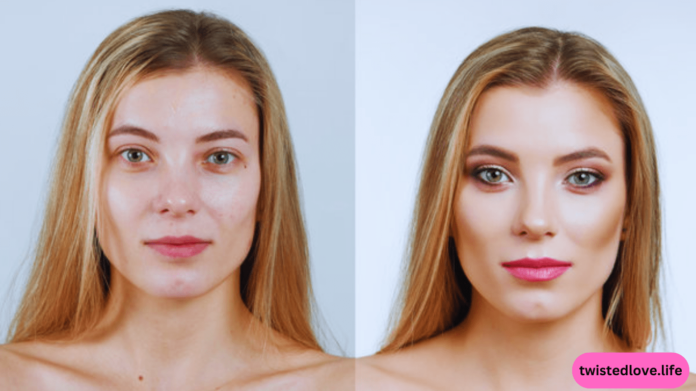Have you ever found yourself hesitating to take off your makeup in front of your partner? You’re not alone. This seemingly simple act can feel daunting, leaving many wondering why it’s so challenging. Let’s dive into the reasons behind this emotional struggle and how to overcome it.
The Psychological Aspects of Makeup
Makeup as a Confidence Booster
Why Can’t I Take My Makeup Off Around My Partner, Makeup isn’t just a tool for enhancing your appearance—it’s a confidence booster. For many, it provides a sense of control and empowerment, helping them face the world with a bit more courage.
The Fear of Vulnerability
One of the biggest reasons people avoid removing their makeup is the fear of vulnerability. Makeup often acts as a shield, hiding perceived imperfections.
Unveiling the “Real You”
Taking off makeup can feel like stripping away your armor, leaving you exposed. This fear of showing the “real you” can be heightened in romantic relationships.
Societal Pressures and Beauty Standards
Society bombards us with images of flawless beauty, creating unrealistic expectations. These pressures can make it hard to feel confident in your natural skin, especially around someone you care about deeply.
Relationship Dynamics and Makeup
The Role of Early Impressions
First impressions matter, and many people use makeup to present their best selves initially. This can create a pattern where removing makeup feels like breaking an unspoken agreement.
Expectations vs. Reality in Romantic Relationships
Partners may develop an image of you based on your appearance, and the fear of altering that perception can be overwhelming.
How Comfort Levels Evolve Over Time
As relationships mature, comfort levels usually increase. But if this doesn’t happen naturally, it’s worth exploring why.
Communication and Trust in Relationships
Why Open Conversations Matter
Talking openly about insecurities can foster trust and understanding. If you’re hesitant about removing your makeup, sharing your feelings can help your partner empathize.
Sharing Your Insecurities With Your Partner
Admitting vulnerability isn’t a sign of weakness—it’s a step toward building a deeper connection.
Tips to Feel Comfortable Without Makeup
Gradual Transitions
Start small by removing makeup in stages. For instance, leave your eyeliner on but remove foundation. This can help ease the transition.
Prioritizing Self-Love and Confidence
Building self-love takes time but is crucial. Remind yourself that your worth isn’t tied to how you look.
Building a Supportive Environment
Surround yourself with people who uplift you and encourage authenticity, including your partner.
When It’s More Than Just Makeup
Identifying Underlying Insecurities
If the thought of being bare-faced causes significant anxiety, it may stem from deeper insecurities that need addressing.
Seeking Professional Guidance
Therapists or counselors can help uncover and address the root causes of these feelings, providing tools to overcome them.
Conclusion
Taking off your makeup in front of your partner might feel like a monumental task, but it’s rooted in normal human emotions. By understanding these feelings, communicating openly, and taking gradual steps, you can embrace your authentic self without fear. Remember, a healthy relationship values the person you are underneath it all.
FAQs
Why do I feel insecure without makeup?
Feeling insecure without makeup often stems from societal beauty standards or personal insecurities about appearance.
How can I talk to my partner about my insecurities?
Be honest and open. Explain your feelings in a calm setting, and let them know how they can support you.
Is it normal to feel vulnerable without makeup?
Absolutely. Makeup often acts as a protective layer, and removing it can feel like exposing your vulnerabilities.
Can makeup impact relationship dynamics?
Yes, especially if one partner relies heavily on it to feel confident. Open communication can help mitigate any issues.
What steps can I take to build confidence without makeup?
Practice self-love, take gradual steps to embrace your natural look, and seek support from loved ones or professionals if needed.



